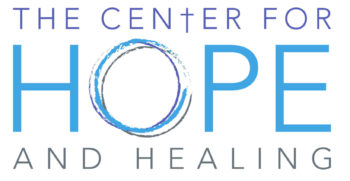With a life of busy schedules and unexpected challenges, it can be easy to get caught up in our society’s unrealistic standards and feel shame about our lives. Often, we become so wrapped up in our mistakes or uncontrollable situations that we flagellate ourselves with self-criticism. The bible says, “clothe yourselves with compassion, kindness, humility, gentleness and patience” (Col 3:12, NIV). As Christians, we seem to remember to provide compassion to others but completely forget to practice self-compassion.
Compassion is a topic as old as the bible but research on the importance and practice of self-compassion is relatively new and was pioneered by Kristin Neff over the past 20 years. She has devoted her career to studying the components and impact of self-compassion. She has created her free website to share all her discoveries, tips, and guided exercises she developed to help people improve their mental health. ( https://self-compassion.org/) She writes “With self-compassion we mindfully accept that the moment is painful, and embrace ourselves with kindness and care in response, remembering that imperfection is part of the shared human experience. This allows us to hold ourselves in love and connection, giving ourselves the support and comfort needed to bear the pain, while providing the optimal conditions for growth and transformation.”
She outlines the practice of self-compassion in three steps that can be used by anyone anywhere. Each step has a phrase associated with it and she encourages participants to add their own language and make the practice their own. In my practice with clients, I’ve also added some actions to deepen the exercise somatically.
- Mindfulness vs. Over-identification.
- The phrase – “This is a moment of suffering.”
- Suggested action – inhale, clench your fists, name the experience, release your fists and exhale.
- During the first step, the goal is to call forth suffering or distress and give a name to it without judgment. This is helpful because people often experience suffering and turn away from it or distract themselves from the pain. By turning toward the suffering mindfully people allow themselves to hold space for the experience without getting overwhelmed by it. Also, many of us have learned the habit of invalidating our suffering, but when we validate the difficulty, we don’t have to pretend it’s not hard or painful.
- Common humanity vs. Isolation.
- The phrase “Suffering is a part of life.”
- Suggested action- outstretch your hand and imagine a connection to common humanity.
- During the second step, the goal is to acknowledge that suffering and failure are part of being human and therefore we are not alone in it. This step is helpful because people often feel disconnected and alone when they deal with something difficult and painful. Identifying the common humanity can be a reminder that you’re not the only one who is struggling and that you’re part of something bigger.
- Self-kindness vs. Self-judgment.
- The phrase “May I be kind to myself in this suffering.”
- Suggested action- bring your hand to your chest, give yourself a squeeze or do another gesture to provide comfort.
- During the third step, the goal is to elicit an action or phrase that is kind and comforting. Approaching misfortune or difficulties with sympathy and gentleness is an essential component of compassion and this exercise simply applies this inward. Sometimes the best way to conjure up a kind statement is to think of how you would comfort a loved one who just experienced the same issue and say that to yourself. Many people find that it feels natural to be compassionate with others but feel uncomfortable giving themselves the same treatment.
